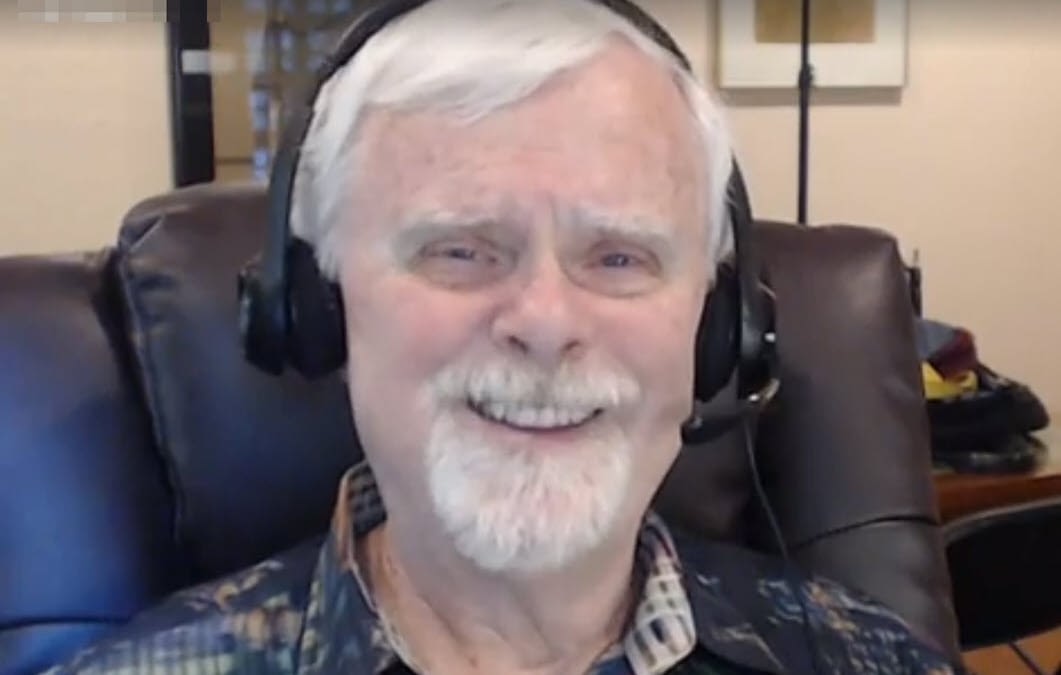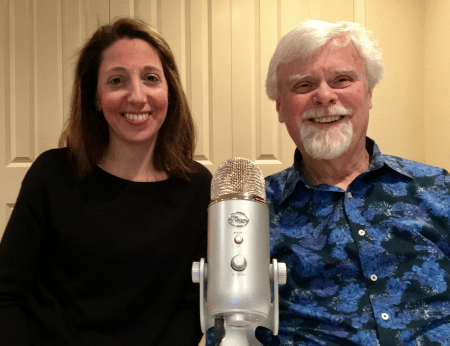We are getting some fascinating questions from our listeners. Thanks! In today’s podcast, we will answer six of them.
Debbie asks: Can you use TEAM-CBT to help people with medical disorders, such as Parkinsonism or Cancer?
Here is the promised link to Stirling Moorey’s book on Cognitive Therapy for cancer patients.
Here is the link the first episode of live therapy with Marilyn, a woman who was diagnosed with Stage 4 lung cancer a couple days before her session with David and Dr. Matthew May. You may also want to listen to podcasts 50 to 52 and 59, which also feature David and Matt working with Marilyn. Marilyn described these inspiring podcasts as mind-blowing!
Mark asks: How can I help a depressed family member or friend who is passive and doesn’t want to do anything?
Paul asks: How can I get over death anxiety?
Sune asks: If you’re super-shy, does this mean you have “Avoidant Personality Disorder?” What’s the difference between garden variety shyness and a personality disorder?
Sly asks: “Do you believe in the big five personality traits model? And will your therapy tools change these big five traits? I got a score of 67 on neuroticism, which means I am more prone to anger, depression, anxiety, and vulnerability, and tend to think about things in a pessimistic way. If I do the exercises in your books, and develop a more realistic outlook on myself and others, does it follow that my “personality traits” will get more or less changed?”
According to Wikipedia, the “Big Five” are O = Openness to experience, C = Conscientiousness, E = Extraversion, A = Agreeableness, and N = Neuroticism, often represented by the acronym, OCEAN.
Here’s an important point I forgot to make on the podcast. According to Wikipedia, here’s the definition of “Neuroticism:” People with high neuroticism indexes are at risk for the development and onset of common mental disorders. . . such as mood disorders, anxiety disorders, and substance use disorder, symptoms of which had traditionally been called neuroses.”
Can you see that this is a tautology? In other words, they ask you if you tend to have these kinds of symptoms, then they tell you this is “due to” some “trait” you have called “neuroticism.” But they are defining “neuroticism” as people who tend to have more of these kinds of symptoms! It’s circular reasoning.
I hope you can “see” this! The reason I mention this is they make it sound like they discovered some “trait” you have which causes you to have depression, or anxiety, and so forth. But they haven’t! It’s just a word game. In fact, scientists don’t yet know the causes of any of these problems, and “traits” do not actually “exist.”
Haike asks: What if you’ve battled your negative thoughts and self-defeating beliefs and still don’t feel happy? An absence of depression and anxiety does not necessarily mean more joy in life. How can you help people find out where they want to go in life, who they want to be, and what it is that brings them happiness?”
Here is the promised link to the first of the five podcasts on Five Simple Ways to Boost Your Happiness.
Dr. Fabrice Nye currently practices in Redwood City, California and treats individuals throughout the world (but not across U.S. state lines) via teletherapy. You can reach him at fabrice@life.net. You can reach Dr. Burns at david@feelinggood.com. If you like our jingle music and would like to support the composer Brett Van Donsel, you may download it here.
* * *
A COOL UPCOMING WORKSHOP FOR YOU
TEAM-CBT Methods for Anxiety Disorders–
Step-by-Step Training for Therapists
by David D. Burns, MD and Jill Levitt, PhD
Dr. Jill Levitt and I are offering what I think will be an outstanding workshop on the treatment of anxiety disorders on Sunday, May 19, 2019. Our Sunday workshops are tremendously fun, so consider attending if you are interested.
The last Sunday workshop in February sold out quickly so register soon if you are interested. You can join in Palo Alto in person or online from anywhere in the world.
THERE WILL BE MANY EXPERT TRAINERS TO GUIDE THE ONLINE PARTICIPANTS DURING THE SMALL GROUP EXERCISES
WHEN: May 19, 2019, 8:30 am – 4:30 pm PST
(11:30 am-7:30 pm EST)
WHERE: Join us live online or in person at the Creekside Inn, Palo Alto, CA.
HOW MUCH DOES IT COST? $135,
WILL I GET CE CREDITS? YES! 7 CE hours available
WILL I GET CREDIT IN THE TEAM LICENSURE PROGRAM? YES!
Completion of this workshop also counts towards TEAM-CBT Level 1, 2 or 3 Certification
WHO CAN ATTEND? Therapists of all levels are welcome
CAN I REGISTER IF I’M NOT A THERAPIST? Although the workshop is geared for therapists, it will be taught in a clear and basic way that anyone can benefit from.
WILL I HAVE FUN? Yes!
WILL I HAVE GET TO HANG OUT WITH SOME COOL COLLEAGUES? Yes!
WILL I GET AN AWESOME FREE BREAKFAST AND LUNCH? Yes!
You will love this lively, amusing, and immensely useful day of training with Drs. Burns, Levitt and the Feeling Good Institute Staff. The trainers will use a combination of didactic teaching, live demonstrations, video, and breakout group practice to enhance skill-building.
REGISTER / LEARN MORE
Act fast if you want to attend!
* * *
Check out the two awesome summer intensives this year!
July 15 – 18, 2019
Calgary four-day intensive
Sponsored by Jack Hirose & Assoc.
July 29 – August 1, 2019
South San Francisco four-day intensive
Sponsored by Praxis



